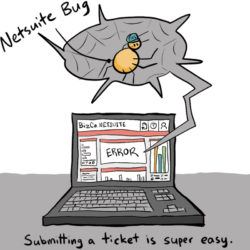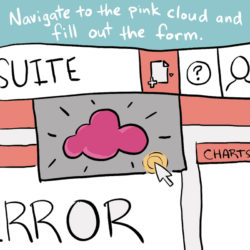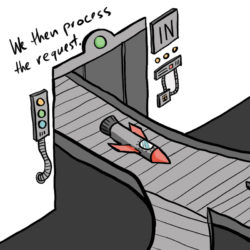This article will compare NetSuite and Salesforce in terms of features, pricing, and support in order to help you decide which CRM is right for your business.
NetSuite and Salesforce are two of the most popular CRMs on the market. They both offer a variety of features and options that can be tailored to fit businesses of all sizes. But which one is better?
NetSuite vs Salesforce: History
NetSuite was founded in 1998 by Evan Goldberg, the current CTO and Chairman of the Board. NetSuite went public in 2007 and was acquired by Oracle in 2016 for $9.3 billion.
Salesforce was founded in 1999 by Marc Benioff, the current CEO. Salesforce went public in 2004 and is currently the largest CRM provider in the world with a market cap of $120 billion.
NetSuite vs Salesforce: Features
When it comes to choosing a CRM (customer relationship management) system for your business, there are a lot of options out there. Two of the most popular CRMs on the market today are NetSuite and Salesforce. Both CRMs offer a wide variety of features, but which one is the best for your business? Let’s take a look at some of the key features of each CRM to help you make a decision.
NetSuite
NetSuite is a cloud-based business software suite that offers a complete set of applications for businesses of all sizes. The suite includes accounting, customer relationship management (CRM), inventory, eCommerce, and much more. NetSuite is known for its ease of use, scalability, and flexibility. It is also hailed for its real-time visibility into business data, which helps businesses make better decisions. NetSuite has been helping businesses grow and scale since 1998. Today, it powers over 24,000 companies in 160 countries around the world.
PREVIOUS POST – Supply Chain Visibility (SCV)? How Can it Benefit Your Business?
Features of NetSuite CRM+
NetSuite CRM+ is a cloud-based customer relationship management software suite that offers a number of features to help businesses manage their customer data. The suite includes tools for sales force automation, customer support and service, marketing campaigns, and Analytics.
It also offers a number of integrations with other business applications, such as e-commerce platforms, accounting software, and ERP systems. In addition, NetSuite CRM+ provides a customizable interface that allows businesses to tailor the software to their specific needs. As a result, NetSuite CRM+ is an essential tool for any business that wants to streamline its customer management processes. Here are its modules and their features.
Salesforce Automation (SFA)
Salesforce Automation (SFA) is a software tool designed to help sales teams manage customer relationships and track sales opportunities. SFA typically includes features such as forecasting, order management, and opportunity tracking. SFA can be used to manage both new and existing customer relationships.
It can also be used to track sales opportunities from initial contact through to close. Sales teams often use SFA to pipeline potential deals and assess their likelihood of success. SFA can also be used to generate reports and analytics that can help sales teams improve their performance. As a result, businesses can manage their sales processes in a more efficient and effective manner.
Customer Service and Support
The Customer Service and Support module provide your business with the tools it needs to provide excellent customer service. Status tracking, customer case submissions, and communications are enabled via online self-service. This means that your customers can easily submit support cases and track their status in real time. The supportive routing and tracking features help ensure that cases are routed to the appropriate team member and that all information is tracked correctly.
In addition, real-time dashboards help monitor key factors, including renewals, customer satisfaction, and resolution metrics. Business processes are automated with case management, making it easy for your team to handle a high volume of customer service requests. With the Customer Service and Support module, you can be confident that your business is providing the best possible service to its customers.
Marketing Campaigns
NetSuite’s Marketing Automation module provides users with everything they need to create and deliver effective email marketing campaigns. The software is designed to be highly intuitive, making it easy to create beautiful campaigns that engage customers and drive conversions. One of the key features of the Marketing Automation module is its ability to track campaigns rapidly, allowing users to see how their efforts are performing in real time.
Additionally, upsell marketing is supported by historical analysis, giving users the ability to identify opportunities for cross-selling and upselling. As a result, NetSuite’s Marketing Automation module is an incredibly powerful tool for businesses of all sizes.
Analytics
The Analytics module helps businesses track and analyze their data. It includes features such as reports and dashboards. In addition, the Analytics module offers a number of integrations with other business applications, such as accounting software and data visualization platforms. As a result, businesses can gain insights into their data and make better decisions.
E-commerce and Flexible Customization
The NetSuite platform offers a number of e-commerce features, such as a shopping cart, product catalog, and order management. In addition, NetSuite provides a flexible customization framework that allows businesses to tailor the software to their specific needs. As a result, businesses can build an e-commerce site that meets their unique requirements.
RELATED POST – NetSuite Inventory Management: A Comprehensive Guide
Salesforce CRM
Salesforce is a cloud-based customer relationship management (CRM) software suite that offers a number of features to help businesses manage their customer data. The suite includes tools for sales force automation, customer support and service, marketing campaigns, and analytics. It also offers a number of integrations with other business applications, such as e-commerce platforms, accounting software, and ERP systems.
In addition, Salesforce provides a customizable interface that allows businesses to tailor the software to their specific needs. As a result, Salesforce is an essential tool for any business that wants to streamline its customer management processes. Here are its modules and their features;
Sales Cloud
The Sales Cloud is the most popular of Salesforce’s modules, and it offers a comprehensive suite of tools for managing sales operations. Perhaps the most important feature of the Sales Cloud is its contact management system, which gives users a complete view of their customer base.
The Opportunity Management tool helps users track sales prospects and pipelines, while the Lead Management tool allows users to capture and follow up on leads.
Data Management is another key feature of the Sales Cloud, providing users with powerful tools for managing customer data. Reports and Dashboards give users real-time visibility into their sales performance, while Email Integration makes it easy to connect with customers and prospects.
Finally, the Salesforce Mobile app gives users the ability to access their sales data from anywhere, allowing them to close deals on the go.
Service Cloud
The Service Cloud is a set of tools and features designed to help businesses improve their customer service operations. The Lightning service console provides a unified view of all customer interactions, making it easy for agents to resolve issues quickly. Telephony integration allows customers to be transferred seamlessly between different channels, and social customer service provides an easy way to monitor and respond to customer queries on social media platforms. Omni-channel routing ensures that queries are routed to the most appropriate agent, and case management helps agents to track and resolve cases effectively.
Workflow and approvals provide a way to automate repetitive tasks, and asset and order management allows businesses to keep track of customer orders and assets easily. Automation with macros helps agents to resolve cases faster, and custom reports and dashboards provide valuable insights into customer behavior. Account and contact management gives businesses a complete view of their customers, making it easier to provide them with the best possible service.
Marketing Cloud
Salesforce’s Marketing Cloud is a comprehensive suite of tools that helps businesses connect with their customers across all channels. The platform includes modules for mobile messaging, digital advertising, email marketing, social media marketing, B2C journey management, B2B marketing automation, data management, and data sharing. Each module provides a range of features that helps businesses engage with their customers in a more effective and efficient way.
For example, the mobile messaging module allows businesses to send SMS messages to their customers in real time, while the digital advertising module helps businesses create and manage digital ad campaigns. In addition, the Email marketing module provides a range of features that helps businesses create and manage email campaigns, while the social media marketing module helps businesses connect with their customers on social media platforms. Overall, Salesforce’s Marketing Cloud is a powerful tool that can help businesses reach their customers across all channels.
PREVIOUS POST – Developing a Workplace Atmosphere for Expert NetSuite Freelancers
NetSuite Vs Salesforce: Similarities
When it comes to business software, two of the most popular names are NetSuite and Salesforce. Both offer a wide range of features and benefits that can help businesses streamline their operations and improve their bottom line. But what exactly do these two software platforms have in common? Here are just a few key ways in which NetSuite Salesforce are similar:
- NetSuite and Salesforce are both CRM (customer relationship management) software.
- Both NetSuite and Salesforce offer a suite of tools for managing customer relationships.
- Both NetSuite and Salesforce offer a range of features that helps businesses connect with their customers across all channels.
- Both NetSuite and Salesforce offer a free trial.
- NetSuite and Salesforce are both cloud-based software platforms.
NetSuite Vs Salesforce: Differences
When it comes to NetSuite vs Salesforce, there are some key ways in which these two software platforms differ. Here are just a few of the key differences between NetSuite and Salesforce:
- NetSuite is an ERP (enterprise resource planning) software, while Salesforce is a CRM (customer relationship management) software.
- NetSuite offers a suite of tools for managing all aspects of a business, while Salesforce focuses primarily on customer relationship management.
- NetSuite is designed for businesses of all sizes, while Salesforce is primarily designed for small and medium-sized businesses.
- NetSuite is a more expensive software platform than Salesforce, but it offers a wider range of features and benefits.
- NetSuite is a cloud-based software platform, while Salesforce offers both cloud-based and on-premise versions of its software.
Salesforce: The Pros
Salesforce is a popular CRM software that offers a wide range of features and benefits. Some of the key advantages of Salesforce include:
- Salesforce is a cloud-based software, which means it can be accessed from anywhere in the world.
- Salesforce offers a wide range of features, including mobile messaging, digital advertising, email marketing, social media marketing, and B2C journey management.
- Salesforce is a scalable software platform that can be customized to meet the needs of any business.
- Salesforce has a low learning curve, so businesses can get started using the platform quickly and easily.
- Salesforce offers a free trial, so businesses can try the platform before they buy it.
Salesforce: The Cons
Salesforce is not without its drawbacks. Some of the key disadvantages of Salesforce include:
- Salesforce is a more expensive software platform than NetSuite.
- Salesforce offers a limited range of features compared to NetSuite.
- Salesforce is not as widely used as NetSuite, so there is less support available for businesses who use the platform.
Overall, Salesforce is a powerful CRM software that offers a wide range of features and benefits. However, it is more expensive than NetSuite and it offers a limited range of features.
RELATED POST – OdeCloud Community Fosters Meaningful Connections Among NetSuite Consultants
NetSuite: The Pros
NetSuite is an ERP software that offers a wide range of features and benefits. Some of the key advantages of NetSuite include:
- NetSuite is a cloud-based software, which means it can be accessed from anywhere in the world.
- NetSuite offers a wide range of features, including financial management, inventory management, order management, and customer relationship management.
- NetSuite is a scalable software platform that can be customized to meet the needs of any business.
- NetSuite has a wide range of integrations, so businesses can connect it to other software platforms they use.
- NetSuite offers a free trial, so businesses can try the platform before they buy it.
NetSuite: The Cons
NetSuite is a cloud-based business software suite that offers a wide range of applications, including CRM, eCommerce, and financials. While NetSuite boasts many features and benefits, it also has some drawbacks that businesses should be aware of before making the switch.
- The software can be expensive to implement and maintain, particularly for small businesses.
- Additionally, NetSuite requires a significant amount of training in order to be used effectively, which can also add to the overall costs.
NetSuite vs Salesforce: Conclusion
After NetSuite vs Salesforce, it’s clear that they are both CRM suites with a lot to offer businesses of all sizes. However, there are some key differences between the two. NetSuite is largely geared towards larger enterprises, while Salesforce offers a more comprehensive solution for small and midsize businesses.
In terms of features, NetSuite offers more robust accounting and inventory management tools, while Salesforce provides a more user-friendly interface and better integration with social media platforms. Pricing is also a consideration, as Salesforce can be more expensive for businesses with complex needs.
Ultimately, the decision of which CRM to use depends on the specific needs of the business.










